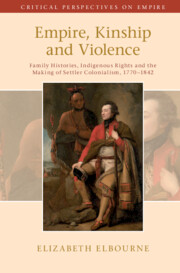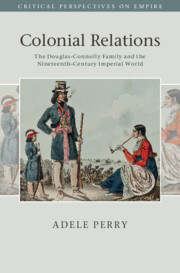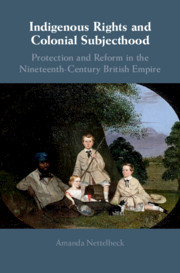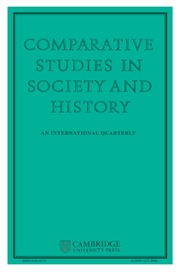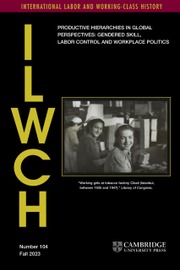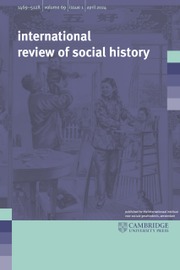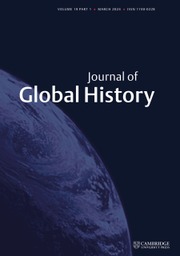Empire, Kinship and Violence
Empire, Kinship and Violence traces the history of three linked imperial families in Britain and across contested colonial borderlands from 1770 to 1842. Elizabeth Elbourne tracks the Haudenosaunee Brants of northeastern North America from the American Revolution to exile in Canada; the Bannisters, a British family of colonial administrators, whistleblowers and entrepreneurs who operated across Australia, Canada and southern Africa; and the Buxtons, a family of British abolitionists who publicized information about what might now be termed genocide towards Indigenous peoples while also pioneering humanitarian colonialism. By recounting the conflicts that these interlinked families were involved in she tells a larger story about the development of British and American settler colonialism and the betrayal of Indigenous peoples. Through an analysis of the changing politics of kinship and violence, Elizabeth Elbourne sheds new light on transnational debates about issues such as Indigenous sovereignty claims, British subjecthood, violence, land rights and cultural assimilation.
- Appeals to a broad range of scholars of British imperial history, settler colonial studies, Indigenous studies, the history of the American Revolution, and histories of Canada, Australia and southern Africa
- Uses human stories to illuminate the broader history of the formation of settler colonial states, including the changing politics of violence and kinship
- Explores the early history of struggles over Indigenous rights
Reviews & endorsements
'Elbourne's exploration of settler colonialism at Britain's 'imperial meridian' is magisterial in scope and execution. Via the sprawling Brant, Bannister and Buxton families, Elbourne expertly connects colonial violence both to economic exploitation and to humanitarian moralising in revolutionary America, the new Antipodean colonies, West Africa and metropolitan Britain.' Zoë Laidlaw, University of Melbourne
'This exhaustively researched and elegantly written book provides a new perspective on the genesis of settler colonialism in North America, Australasia and Africa by focusing on the dynamism of three variously implicated families. The Brants, Banisters and Buxtons carved out an intergenerational imperial presence as they participated in the contraction and re-expansion of the British Empire's settler colonies between the 1770s and 1830s. In these days of simplistic and binary contests over the nature and legacies of colonialism, Elbourne's wonderfully nuanced and focused scholarship deserves the widest possible readership.' Alan Lester, University of Sussex
'In a brilliantly successful and very well written experiment, Elizabeth Elbourne has combined the global scale of the British Empire, on four continents, with the local of individual families. Through this compositional tour-de-force, she presents innumerable insights into the processes of colonization, for the indigenous, colonizers and their interaction.' Robert Ross, Leiden University
'In this exemplary transnational history, Elizabeth Elbourne provides a creative and devastating account of the linkages between family, intimacy and colonial violence in the British Empire. Focusing on the Brant, Bannister, and Buxton families, Elbourne demonstrates the intertwining of humanitarianism and colonialism during the first half of the nineteenth century and offers a model of how an analytic focus on family sheds new light on indigenous and settler histories as well as colonialism itself. Highly recommended.' Pamela Scully, Emory University
'[this] stimulating examination of the subject is a useful addition for libraries specializing in British imperial history; borderlands studies; and the history of Indigenous people in North America, Australia, and South Africa. … Recommended.' M. Klobas, Choice
Product details
December 2022Adobe eBook Reader
9781108800013
0 pages
This ISBN is for an eBook version which is distributed on our behalf by a third party.
Table of Contents
- Introduction. 'Kinship, violence and the colonial state'
- Part I. North America:
- 1. Before the revolution: belonging and un-belonging in American-Haudenosaunee borderlands
- 2. All the king's men: kinship and the American revolution
- 3. Land, identity and Indigenous sovereignty in British North America, 1783-1820
- Part II. Upper Canada, New South Wales, Van Diemen's Land, Victoria, Western Australia, the Cape Colony, Sierra Leone:
- 4. Upper Canada: Haudenosaunee land claims and the politics of expertise
- 5. New South Wales: Frontier warfare and the 'rule of British law'
- 6. Southern Africa: Protest, petitions and the paradoxes of imperial liberalism
- 7. From Sierra Leone to Swan River: The Bannisters' imperial world
- Part III. Britain, the Cape Colony, West Africa:
- 8. Colonial sins and Priscilla Buxton's quest for virtue
- 9. Keeping colonialism in the family: humanitarianism, empire and the Niger Expedition
- Conclusion.

